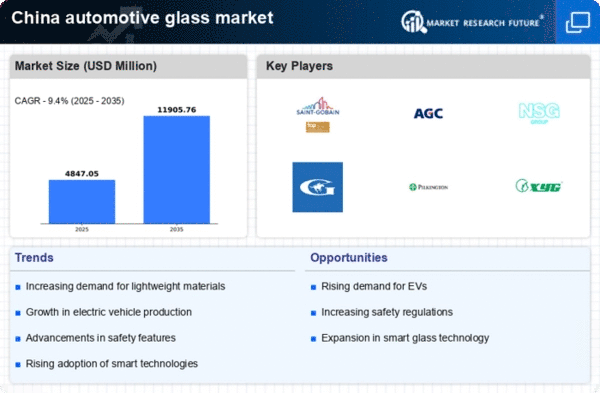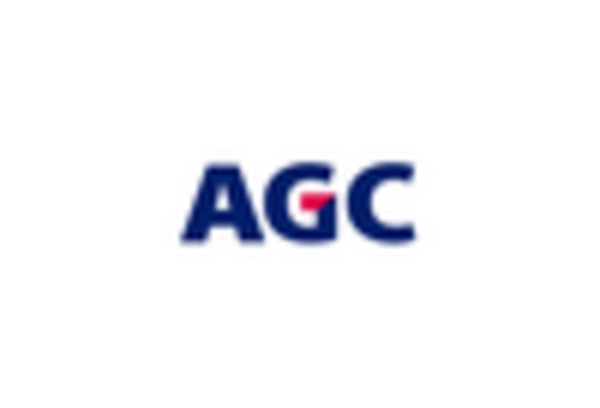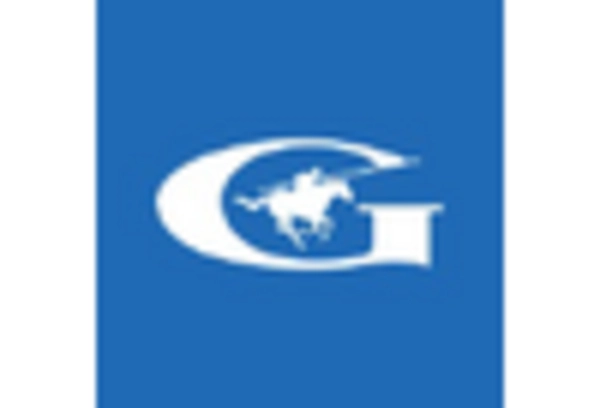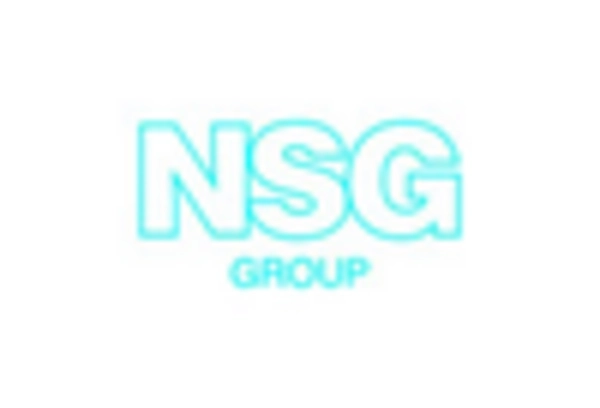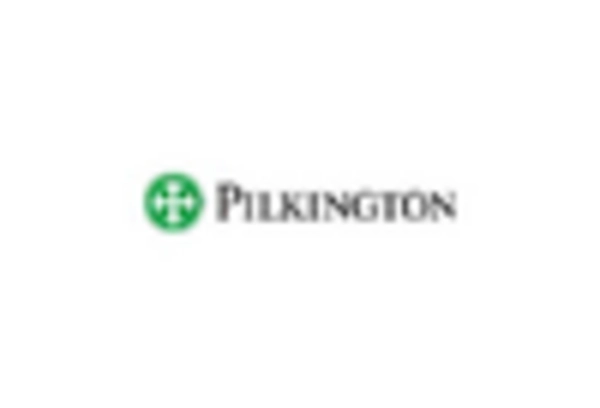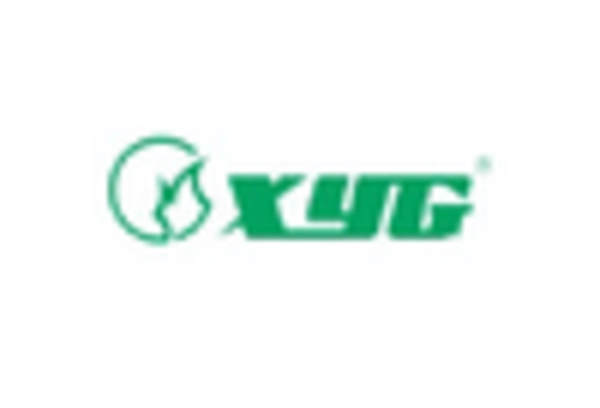Rising Vehicle Production
The automotive glass market in China is experiencing a notable surge due to the increasing production of vehicles. In recent years, the country has emerged as the largest automobile manufacturer, producing over 25 million vehicles annually. This growth in vehicle production directly correlates with the demand for automotive glass, as each vehicle requires multiple glass components, including windshields, side windows, and rear windows. The automotive glass market is thus poised for expansion, driven by the need to supply these essential components. Furthermore, the government's support for the automotive sector, including incentives for manufacturers, is likely to bolster production rates, further enhancing the demand for automotive glass. As the market evolves, manufacturers may need to adapt to changing consumer preferences, which could influence the types of glass products offered.
Increased Safety Regulations
The automotive glass market in China is significantly influenced by the stringent safety regulations imposed by the government. These regulations mandate the use of high-quality glass that meets specific safety standards, such as shatter resistance and UV protection. As a result, manufacturers are compelled to invest in advanced technologies and materials to comply with these regulations. The automotive glass market is thus witnessing a shift towards the production of laminated and tempered glass, which enhances passenger safety. Additionally, the growing awareness among consumers regarding vehicle safety is likely to drive demand for vehicles equipped with superior glass products. This trend may lead to an increase in the overall market value, as consumers are willing to pay a premium for enhanced safety features in their vehicles.
Growing Demand for Luxury Vehicles
The automotive glass market in China is witnessing a shift in consumer preferences towards luxury vehicles, which often feature advanced glass technologies. The demand for luxury vehicles has been on the rise, with sales increasing by approximately 15% annually. These vehicles typically incorporate larger glass surfaces, panoramic sunroofs, and enhanced sound insulation, all of which require specialized glass products. The automotive glass market is thus adapting to this trend by developing high-quality glass solutions that cater to the luxury segment. Additionally, the increasing disposable income among consumers is likely to further fuel this demand, as more individuals seek premium features in their vehicles. This trend may lead to a diversification of product offerings within the automotive glass market, as manufacturers strive to meet the expectations of luxury vehicle buyers.
Expansion of Electric Vehicle Market
The automotive glass market in China is poised for growth due to the rapid expansion of the electric vehicle (EV) market. With the government's commitment to promoting electric mobility, the number of EVs on the road is expected to increase significantly in the coming years. This shift towards electric vehicles presents unique opportunities for the automotive glass market, as EVs often require specialized glass solutions to enhance energy efficiency and reduce weight. For instance, the use of lightweight glass can contribute to improved battery performance and overall vehicle range. As manufacturers adapt to the evolving landscape of the automotive industry, the demand for innovative glass products tailored for electric vehicles is likely to rise. This trend may not only boost the automotive glass market but also encourage further research and development in glass technologies.
Technological Innovations in Glass Manufacturing
Technological advancements in glass manufacturing are playing a crucial role in shaping the automotive glass market in China. Innovations such as the development of lightweight glass and self-healing glass are gaining traction among manufacturers. Lightweight glass contributes to improved fuel efficiency and reduced emissions, aligning with the country's environmental goals. The automotive glass market is thus adapting to these innovations, as manufacturers seek to enhance the performance and sustainability of their products. Moreover, the integration of smart glass technologies, which can adjust transparency based on light conditions, is likely to attract consumers looking for modern features in their vehicles. As these technologies continue to evolve, they may redefine consumer expectations and drive further growth in the automotive glass market.


